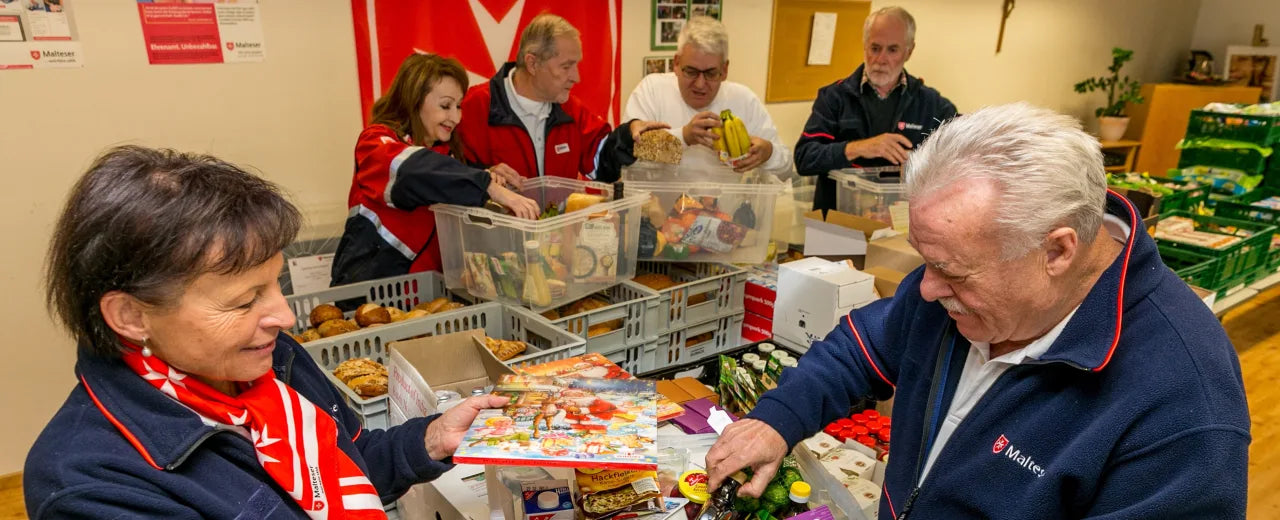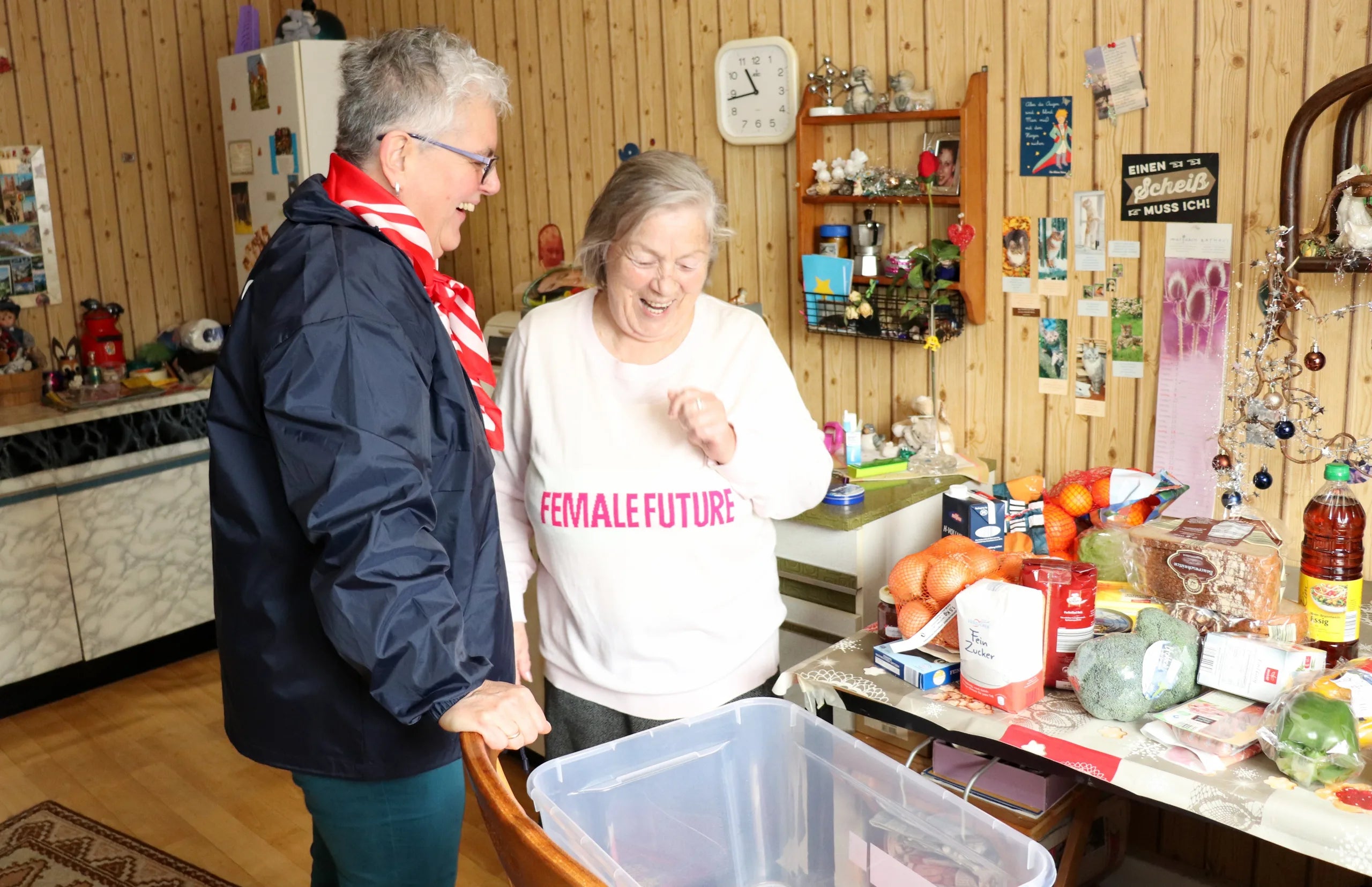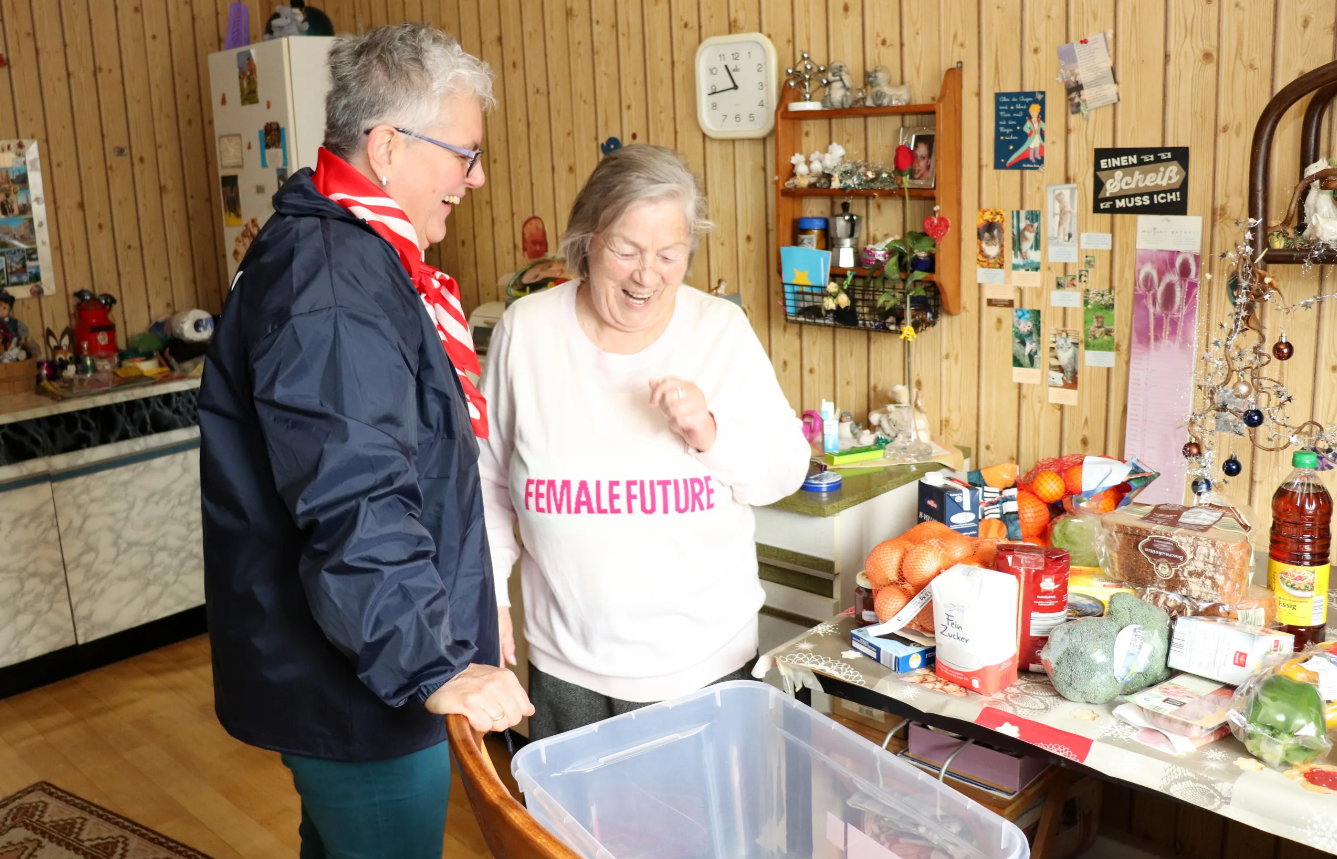Day 2
150 g of food for needy seniors in Bavarian Swabia
 SO THAT THE PLATE DOESN'T STAY EMPTY EVEN IN OLD AGE
SO THAT THE PLATE DOESN'T STAY EMPTY EVEN IN OLD AGE


Enabling people to live their final years in dignity with food parcels

Katharina Countess von Ballestrem-Fugger presents her favorite project
need
Year-round secure supply of food and assistance for senior citizens in Bavarian Swabia
activity
Volunteers deliver monthly food packages to needy immobile seniors
Measurable performance
Number of food parcels delivered
Result
The seniors can also feed themselves at the end of the month, thereby experiencing greater security and well-being as well as access to further support services
Systemically relevant impact
Improvement of food security and quality of life, as well as reduced existential fears and isolation among the supported seniors
background


The good deed
About Germany
Berlin
Capital city
84,079,811
Population
48,432.5
Gross domestic product
per capita per year
0.942
Human Development Index
(Human Development Index)



